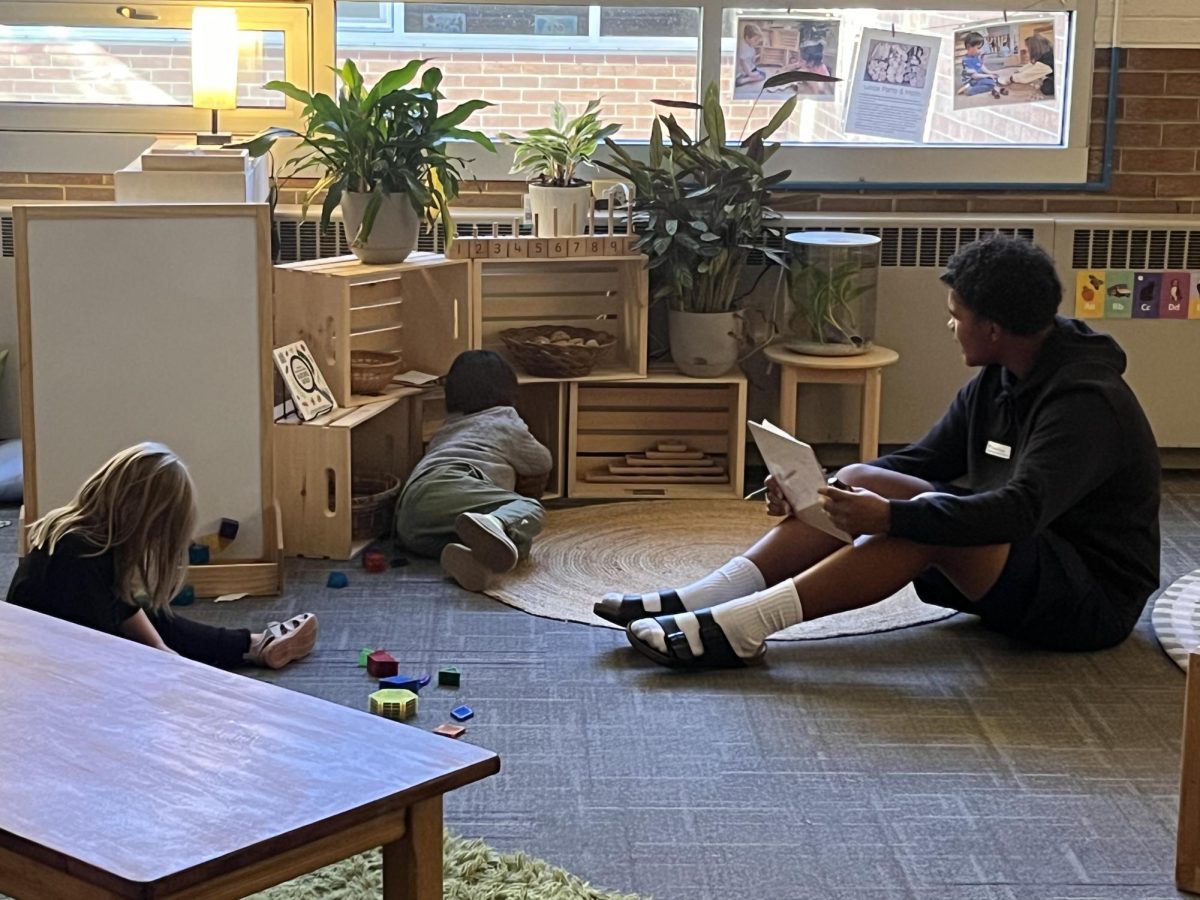There are five principles of Family and Consumer Sciences (FACS): Interior & housing, child development & parenting, consumerism & home economic decisions, fashion design & clothing, and food and nutrition. Alone, all of these concepts carry some importance; together, they make up the essence of a class that teaches skills applicable to everyday life.
But what are FACS classes? According to the Arvada West Website, “The Family and Consumer Sciences Program at Arvada West stimulates students to manage the challenges of living and working in a diverse global society” adding, “Our unique focus is on families, work and their interrelationships.”
Simply put, FACS focuses on critical skills that go largely noticed throughout high-school: how to cook, clean, work with children, manage relationships, and much more. While traditional education focuses on broader concepts including English, Math, Science, FACS focuses on skills that translate directly to the outside world, whether it be in higher education, in the classroom, or at home.
The FACS department also runs a club, FCCLA (Family, Career, and Community Leaders of America), whose mission is “To promote personal growth and leadership development through Family and Consumer Sciences education” according to their website.
While FACS shares many similarities with its predecessor, Home Economics, it has come a long way. Anna Sorzano, head of the FACS department, shares, “In the past, home economics was really focused on the home, and now we’re focused more on careers and how to apply what you learn to different careers.”
Additionally, FACS features different levels; instead of one and done, students can progress through a culinary arts or education pathway spanning multiple years. Sorzano describes how each pathway benefits students, explaining, “If any student takes the education pathway, you learn all about how kids grow, how they develop, and even different types of careers related to working with kids.
In terms of the culinary pathway, she adds, “Eventually, when students move on and graduate, you’re going to have to cook for yourself. You’re going to have to learn how to feed yourself nutritiously so that you can continue to grow and learn. So I would say our skills, you use them all throughout life.”
Overall, Sorzano believes requiring students to take at least one FACS would be a smart move, sharing, “I think if these classes were required, I think students would learn a lot from them. We teach a lot of life skills that students can take with them throughout their whole life. So if these classes were required, I do think it would be beneficial to anybody to take our classes.”
Requiring a class is a scheduling nightmare, or at least it is supposed to be. How can students and administrators fit yet another elective into already busy schedules? With even foreign language classes not making the cut, it seems impossible. But one needs only look at Physical Education to see that solutions are prevalent.
Specifically, at Arvada West, students are required to take at least one semester of a class included in the P.E department. Administrators found a way to make this work, and no one blinks twice at taking a gym class.
However, the argument that a class such as team sports or weightlifting is more important than a child development course is flimsy, if not ridiculous. Additionally, P.E classes are not required for college admission, meaning they serve little to no purpose if students aren’t interested in them. This is a stark juxtaposition with FACS classes that provide students with real-world skills that prepare them for when they inevitably live separately from their parents.
Yet another benefit? Students can choose between the education pathway or culinary pathway, and from there choose a class that speaks to them. Definitely not a cookie-cutter approach, unless perhaps they take a pastry class.
Safiya Zimmerman-Rhea, a student in the FACS culinary department, elaborates on the benefits, explaining “I took FACS classes because I’ve always loved being in the kitchen since I was young and it gave me a little freedom in school to do what I love and am passionate about.”
Additionally, she shares, “I took all of the cooking classes and they taught me healthy and unhealthy meals and countless skills that I will always remember especially with safety in the kitchen.”

As student and teacher opinions reinforce, at a bare minimum students should be given the option between a required P.E class course or a FACS class; this gives students increased autonomy, a key aspect of life beyond high-school. It also allows students the opportunity to take a class they previously may have been interested in but were unable to follow up with due to a P.E class standing in the way.
Despite their graduation requirements, one cannot blame A-West, or even Jefferson County, for our physical education policy. These decisions come from the Colorado State Board of Education, and require legislative actions to repeal or amend. This doesn’t mean change is not possible, but decision making has to come from the top.
While one’s current situation can be frustrating at times, students have the ability to make their voice heard, loud enough that administration has to take notice. From there, they can petition the district, who in turn can talk to the state. While these steps take time, the end product is entirely worth it.
Never in a FACS class will a student ask, “When am I ever going to use this?” And that is perhaps the simplistic beauty that makes one of Arvada West’s lesser known electives so important. Important enough to be required.



